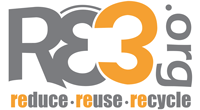 Guest Blogger – Scott
Guest Blogger – ScottConsider that on Oct. 1, 2009, North Carolina implemented a ban on the disposal of wooden pallets, oil filters and plastic bottles. The bans responded to the ongoing need to reduce North Carolina’s dependence on landfill disposal and to strong recycling market conditions for the targeted materials. The state’s Divisions of Pollution Prevention and Waste Management have conducted activities to increase awareness of the disposal bans and to help the public, local governments and generators prepare to divert the banned items from disposal to the greatest degree possible. Although it is early in the process, indications are that many citizens, communities, businesses, institutions and industries appear to be responding to the bans with new recycling programs and a new commitment to recycling behavior.
The bottle ban is an important step to support the newly created Clear Path Recycling LLC (Shaw Industries Group, Inc. and DAK Americas, LLC joint venture), to produce recycled polyethylene terephthalate (RPET) from post-consumer PET bottles. Shaw, the world’s largest carpet manufacturer and leading floor covering provider, and DAK, the second largest PET Resin and largest polyester staple fiber producer in the Americas, is constructing a facility to recycle more than 280 million pounds annually of PET bottles, or about five billion bottles.
The RPET material will primarily be used by Shaw and DAK in their polyester-based products. By recycling 280 million pounds of PET bottles, more than 1 million cubic yards per year of landfill space will be conserved.
Note: In 2007, Coca-Cola bottler Coca-Cola Enterprises created Coca-Cola Recycling LLC, investing $60 million in a series of recycling initiatives, including construction of the world’s largest PET bottle-to-bottle recycling plant in Spartanburg, S.C.
These represent significant “producer responsibility” investments by key southeast industries that are game changers by increasing recovered material demand and representing the leading edge of a shift in how local government’s manage and finance recycling programs and required supporting infrastructure.

No comments:
Post a Comment